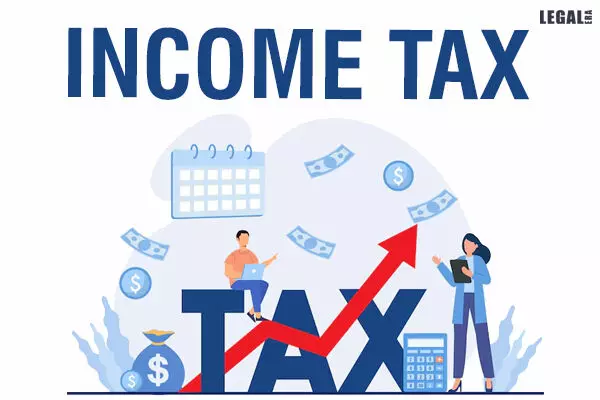- Home
- News
- Articles+
- Aerospace
- Artificial Intelligence
- Agriculture
- Alternate Dispute Resolution
- Arbitration & Mediation
- Banking and Finance
- Bankruptcy
- Book Review
- Bribery & Corruption
- Commercial Litigation
- Competition Law
- Conference Reports
- Consumer Products
- Contract
- Corporate Governance
- Corporate Law
- Covid-19
- Cryptocurrency
- Cybersecurity
- Data Protection
- Defence
- Digital Economy
- E-commerce
- Employment Law
- Energy and Natural Resources
- Entertainment and Sports Law
- Environmental Law
- Environmental, Social, and Governance
- Foreign Direct Investment
- Food and Beverage
- Gaming
- Health Care
- IBC Diaries
- In Focus
- Inclusion & Diversity
- Insurance Law
- Intellectual Property
- International Law
- IP & Tech Era
- Know the Law
- Labour Laws
- Law & Policy and Regulation
- Litigation
- Litigation Funding
- Manufacturing
- Mergers & Acquisitions
- NFTs
- Privacy
- Private Equity
- Project Finance
- Real Estate
- Risk and Compliance
- Student Corner
- Take On Board
- Tax
- Technology Media and Telecom
- Tributes
- Viewpoint
- Zoom In
- Law Firms
- In-House
- Rankings
- E-Magazine
- Legal Era TV
- Events
- Middle East
- Africa
- News
- Articles
- Aerospace
- Artificial Intelligence
- Agriculture
- Alternate Dispute Resolution
- Arbitration & Mediation
- Banking and Finance
- Bankruptcy
- Book Review
- Bribery & Corruption
- Commercial Litigation
- Competition Law
- Conference Reports
- Consumer Products
- Contract
- Corporate Governance
- Corporate Law
- Covid-19
- Cryptocurrency
- Cybersecurity
- Data Protection
- Defence
- Digital Economy
- E-commerce
- Employment Law
- Energy and Natural Resources
- Entertainment and Sports Law
- Environmental Law
- Environmental, Social, and Governance
- Foreign Direct Investment
- Food and Beverage
- Gaming
- Health Care
- IBC Diaries
- In Focus
- Inclusion & Diversity
- Insurance Law
- Intellectual Property
- International Law
- IP & Tech Era
- Know the Law
- Labour Laws
- Law & Policy and Regulation
- Litigation
- Litigation Funding
- Manufacturing
- Mergers & Acquisitions
- NFTs
- Privacy
- Private Equity
- Project Finance
- Real Estate
- Risk and Compliance
- Student Corner
- Take On Board
- Tax
- Technology Media and Telecom
- Tributes
- Viewpoint
- Zoom In
- Law Firms
- In-House
- Rankings
- E-Magazine
- Legal Era TV
- Events
- Middle East
- Africa
Supreme Court: Offence Under Section 276CC Of IT Act Committed Before Show-Cause Notice Is Compoundable As ‘First Offence’

Supreme Court: Offence Under Section 276CC Of IT Act Committed Before Show-Cause Notice Is Compoundable As ‘First Offence’
In a significant ruling, the Supreme Court has set aside the Gujarat High Court’s decision, which upheld the Chief Commissioner of Income Tax, Vadodara’s (CIT) order rejecting an assessee’s application for compounding an offence under Section 276CC of the Income Tax Act, 1961. The Division Bench of Justices J.B. Pardiwala and Sanjay Karol held that the High Court erred in its decision, as the alleged offence for Assessment Year (AY) 2013-14 qualified as a “first offence” under the 2014 compounding guidelines.
The assessee had filed income tax returns for AY 2011-12 and AY 2013-14 belatedly, on March 4, 2013, and November 29, 2014, respectively. The due dates for these filings were September 30, 2011, and October 31, 2013. The Commissioner of Income Tax-III had issued a show-cause notice for AY 2011-12, alleging a violation under Section 276CC of the Act. The assessee subsequently applied for compounding under the 2008 guidelines, which the CIT granted on November 11, 2014.
However, another show-cause notice was issued for AY 2013-14, and the compounding application for this period was rejected on the grounds that the assessee had already received a prosecution notice for AY 2011-12. The Gujarat High Court upheld this rejection, concluding that the AY 2013-14 offence occurred after the issuance of the previous show-cause notice.
The Supreme Court examined whether an offence under Section 276CC is committed on the actual date of delayed filing or the day immediately after the due date under Section 139(1) of the Act. Citing Prakash Nath Khanna v. CIT (2004), the Court reaffirmed that the offence occurs the day after the due date, not the actual date of filing. Thus, for AY 2011-12, the offence occurred on October 1, 2011, and for AY 2013-14, on November 1, 2013—both before any show-cause notice was issued.
The Court also referred to Paragraph 8 of the 2014 guidelines, which defines a “first offence” as one committed before any prosecution notice or intimation from the department. Since both offences were committed before the issuance of any such notice, the assessee’s case fell within the definition of a first offence.
The Court ruled that the CIT erred in rejecting the compounding application and that the High Court wrongly upheld this decision. It emphasized that while compounding is not an automatic right, authorities must consider an assessee’s conduct and case specifics.
The Court directed the assessee to file a fresh compounding application within two weeks, which the competent authority must decide within four weeks. Meanwhile, proceedings before the Trial Court will remain stayed.



